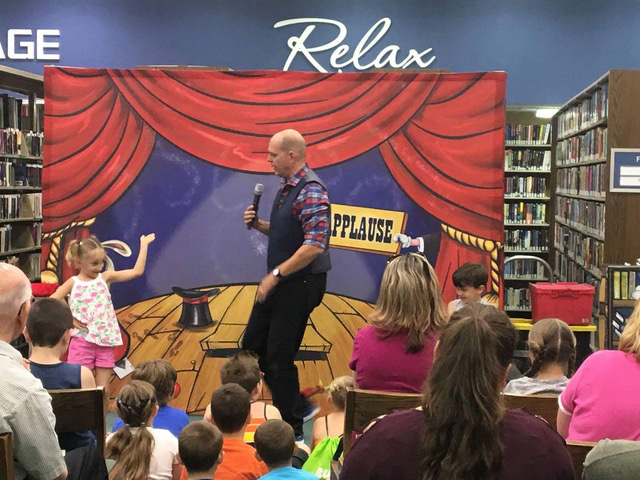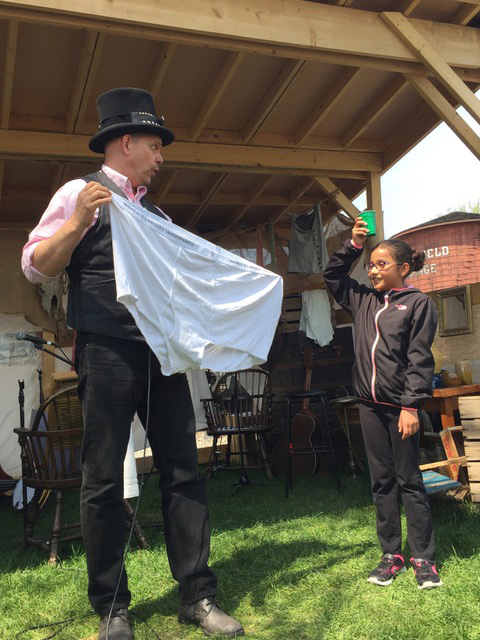
In the performing arts, the summer season presents a special challenge for entertainers who present educational content in their assembly shows. With outdoor venues and a more relaxed atmosphere, performers often question the balance between education and entertainment. Today, we look at the insights and experiences of several artists who have grappled with this dilemma, highlighting their approaches and the preferences of their clients.
As an educational school show performer faced with a variety of summer shows, I realized that many of the lessons I teach in my assembly shows are typically not part of the learning curriculum at summer schools, but these venues provide an opportunity for children and school counselors to enjoy more of a “just for fun” program. Consequently, the focus shifts from reinforcing the educational content to providing a more heavily weighted entertaining experience for all involved. For the performers that do this the decision of making this “summer time switch” is always communicated to clients during the booking process.
On a facebook page for educational school show performers, the debate of keeping our messages strong in the more relaxed and casual summer environment was discussed. The responses of 15 assembly show performers from around the world are summarized in this article along with perspectives of long time clients.

When we opened the discussion with other educational performers, a range of perspectives emerged. Some advocated for pure fun shows, while others felt it was necessary to include a light message in their performances. One artist specifically mentioned that he modifies science shows to provide an engaging and visually stimulating experience, even outdoors or in inclement weather.
The overwhelming consensus expressed by numerous librarians and summer school clients tends to emphasize fun with a light educational message. Many performers emphasized that librarians prefer entertainment over extensive educational content, even for summer reading camps. This preference was also expressed by other performers, who confirmed that they did not include strong lessons or messages, preferring instead a lighthearted experience for the children.
Recognizing the different needs of customers, one experienced performer emphasized that as school show performers we need to adapt to the needs of customers rather than imposing our own assumptions. This means understanding that a client’s needs can change from one event to the next, which requires a flexible approach. By creating a show that is both entertaining and educational, performers can meet the expectations of summer camps seeking educational content but also want their summer school kids to have fun.
Performers recognize that summer schools can last a whole day, six to eight hours. Consequently, filling only one hour with educational material may not be enough. Some performers incorporated educational tidbits into their shows with a humorous touch to keep the flow going. Still, it was important to strike a balance between education and entertainment to ensure an engaging experience for the audience.

Taking into account climate and logistical considerations, the artists shared their observations. For example, one Florida entertainer stressed that outdoor performances should be avoided in June, July and August due to the intense heat. In addition, several artists stressed the importance of open communication with clients, allowing them to choose the educational components they want and customize the show accordingly. Watching a show in the blistering heat can be a miserable experience for audiences so moving camp shows indoors allows for more comfort where educational messages can be received better.
A performer from Croatia added a unique perspective, emphasizing that client expectations revolve around several key factors. The success of the show, ease of organization, and overall satisfaction during the performance were top of mind. An educational message, he said, is valuable but can be condensed to emphasize the fun factor. This finding shows the importance of tailoring performances to specific cultural contexts.
In the realm of summer shows, it is critical to find the delicate balance between education and entertainment. By understanding the preferences and needs of their customers, school and library performers can create memorable experiences that satisfy both. Flexibility, effective communication and the ability to adapt to changing circumstances are keys to success. Ultimately, it’s about creating a show that not only entertains, but also has a lasting impact on audience development and enjoyment.
To learn more about educational school shows offered for summer schools, libraries and camps, please visit: